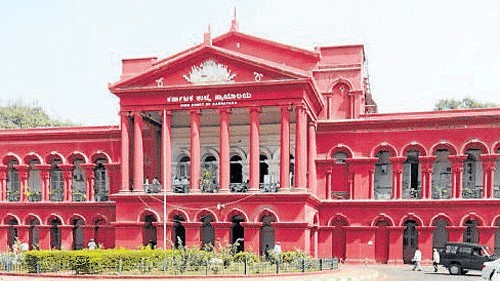
Karnataka High Court.
Credit: DH File Photo
Bengaluru: The Karnataka High Court’s judgement that the cabbie is an employee of Ola under the provisions of the Sexual Harassment of Women at Workplace (Prevention, Prohibition and Redressal) Act, 2013, (PoSH Act) is regarded significant.
Justice Kamal passed this order while partly allowing the petition filed by the woman, who had questioned the stand taken by the Internal Complaint Committee (ICC) of ANI Technologies Pvt Ltd (Ola). The committee did not take action on the driver as laid out by the PoSH Act.
The court said that for the purpose of the PoSH Act, the driver-subscriber is an ‘employee’ of Ola.
“...for purposes of advancement of the intent and object of the PoSH Act, 2013, it is necessary and compelling that the meaning of the term 'employee' be extended to cover persons like driver-subscriber. Anything short of this would result in rendering the purpose, intent and object of the PoSH Act, 2013, ineffective in the vast private sector of this nature,” Justice Kamal said.
Ola had claimed that it is merely an 'Intermediary' providing technology-based platform for driver-subscribers and the rider-subscribers without having control of any nature whatsoever over either of them. It said that drivers are not its ‘employees’, but were ‘independent contractors’ and that ICC has no jurisdiction to initiate any inquiry under the PoSH Act.
Ola also submitted that there is no relationship between 'employer' and 'employee'. The aggregator further argued that under Section 11 of PoSH Act, respondent in a complaint of sexual harassment has to be an 'employee' for the ICC to conduct an inquiry into the complaint of an 'aggrieved woman'.
However, the court said that being an aggregator under the Aggregators Rules 2016 (state Rule), Ola has additional statutory obligation of ensuring the safety of the passengers by further ensuring proper use of the taxi/vehicle and to inform occurrence of any untoward incident to the licensing authority and to the police. Failure of which entails the authorities concerned to revoke the licence in the manner enumerated under the rules.
The court further said, “Argument canvassed on behalf of Ola is that there is no compulsion to utilise its service, and one is free and at liberty to choose or not to choose. True it is, that though such an option is available, the same cannot be used as an excuse not to adhere to the statutes and directives as held by the Supreme Court in the case of LIC of India case of 1995.”